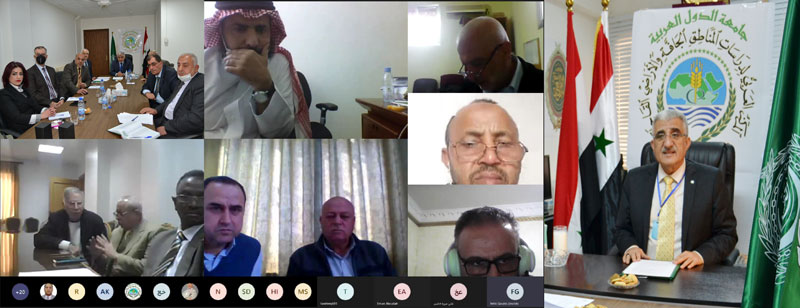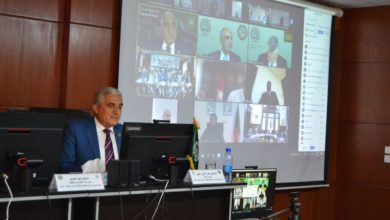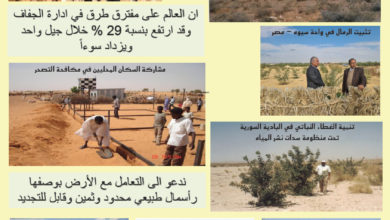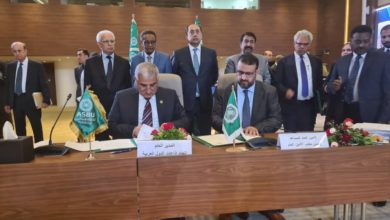“The Integrated Management of Natural Rangeland” / A scientific symposium at ACSAD Organization
Under His Excellency’s patronage, Dr. Nasr Edin Obaid, the Director-General of the Arab Center for the Studies of Arid Zones and Drylands, the Organization held a scientific symposium on “The Integrated Management of Natural Rangeland.” Fifty-three experts and researchers participated from the Ministries of Agriculture and the Agricultural Engineers Syndicates in all Arab countries, specialized and concerned in rangeland management and development; besides, experts from four international and regional organizations ( Arab Organization for Agricultural Development, The Arab Authority for Agricultural Investment and Development (AAAID), The Union of Arab Agricultural Engineers, and the United Nation Organization for Food and Agriculture( FAO) – Damascus Office.
In delivering a speech at the beginning of the symposium, His Excellency the Director-General, Dr. Nasr Edin Obaid, confirmed that the Arab Center(ACSAD) was seeking to cooperate with the Ministries of Agriculture and Environment, Universities, Arab Agricultural Engineers Syndicates, and various specialized bodies to implementing events, activities, scientific research and development projects, workshops, and training courses in the different areas of natural rangeland sector, aiming at the promotion of natural rangeland reality in the Arab region and protecting it from degradation and restoring the degraded ones. As its belief in this pastures` importance in achieving the essential part of the Arab food security, establishing social stability to livestock breeders in the Arab deserts ( Al-Badia), improving their livelihood, as it’s an actual safety valve and vegetation in dry areas.
He pointed out that the Arab Center Organization (ACSAD) intensified its activities and provided its experiences and potentials to limit the degradation situation the Arab natural pastures reached. It also worked to specify many species and genotypes of pastoral plants promising and suitable for the cultivation of the degraded rangeland in the arid and semi-arid areas, which got to 3000 kg per acre in the rain-fed land and 5000 kg per acre in the irrigated land. And it had undertaken to implement several successful projects in Syria, “the headquarters country,” and in all Arab countries, aiming to restore the pastures and build capacities of Arab technical staffs.
He also noted the turnout experts’ participation from all the Arab countries in this vital and important topic was evidence of the great importance of rangelands in the Arab region. He also confirmed ACSAD’s keenness to let this symposium achieve its promised goals, the most important of which were the exchange of available information about the axes included in them, coordinating among all working parties in this field, formulation of an integration plan for more research, and awareness-raising organizational actions in the different areas of rangelands sector in the Arab region.
His excellency the Director-General presented a comprehensive presentation on The Arab Center Organization (ACSAD) ‘s achievements since its establishment, its implementations for many significant development programs and projects that yielded highly economic revenue on Arab agriculture quantitatively and qualitatively.
The symposium held on 9/3/2021 via videoconference focused on several axes in which the specialized experts presented high-level scientific presentations contained field applied information of the rangelands importance in the Arab world and the reasons for its degradation, the methods and means to natural rangelands restoration and development, the Arab Center ( ACSAD)’s achievements, researches and projects in the field of rangelands development.
The symposium was full of high-level interventions, and the participating researchers’ queries resulted in a set of recommendations, which its implementation would contribute to the rehabilitation of degraded rangelands and increase their productivity in the Arab region.




